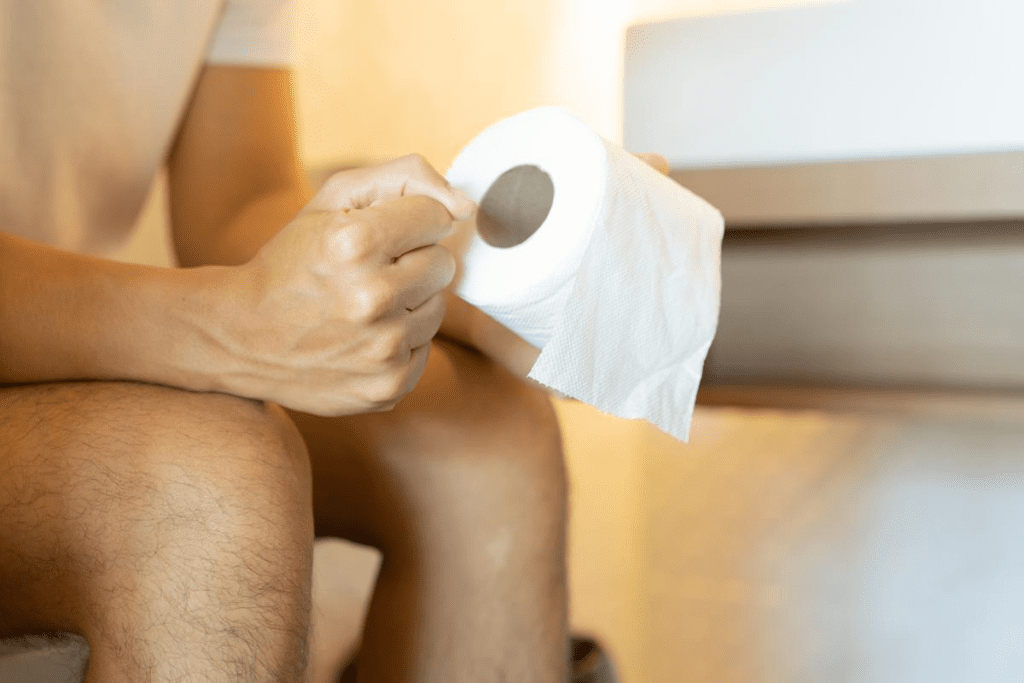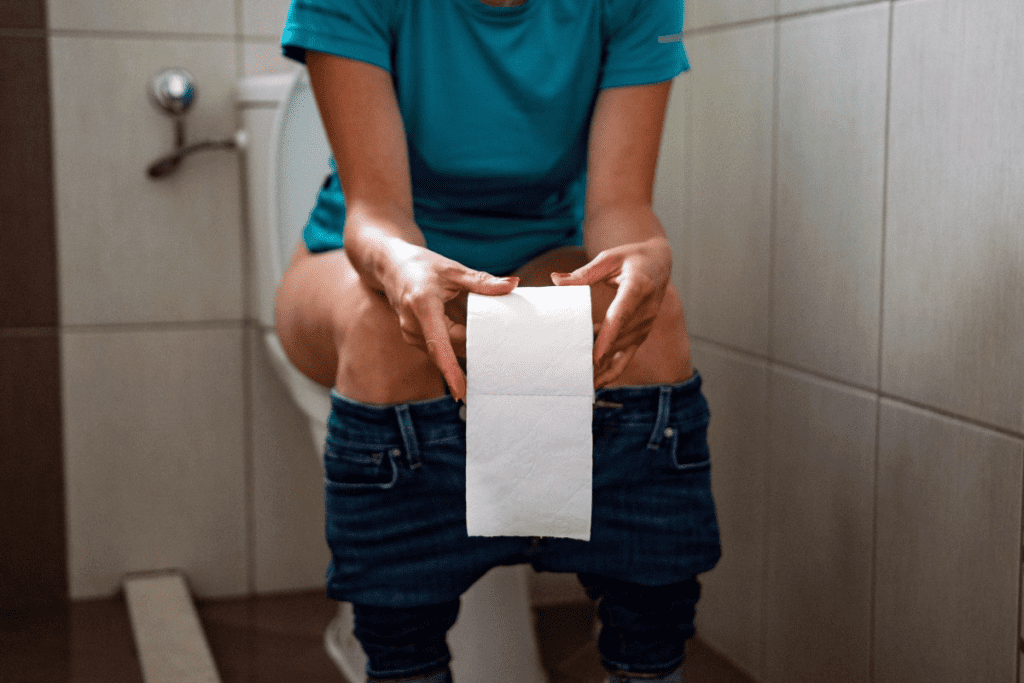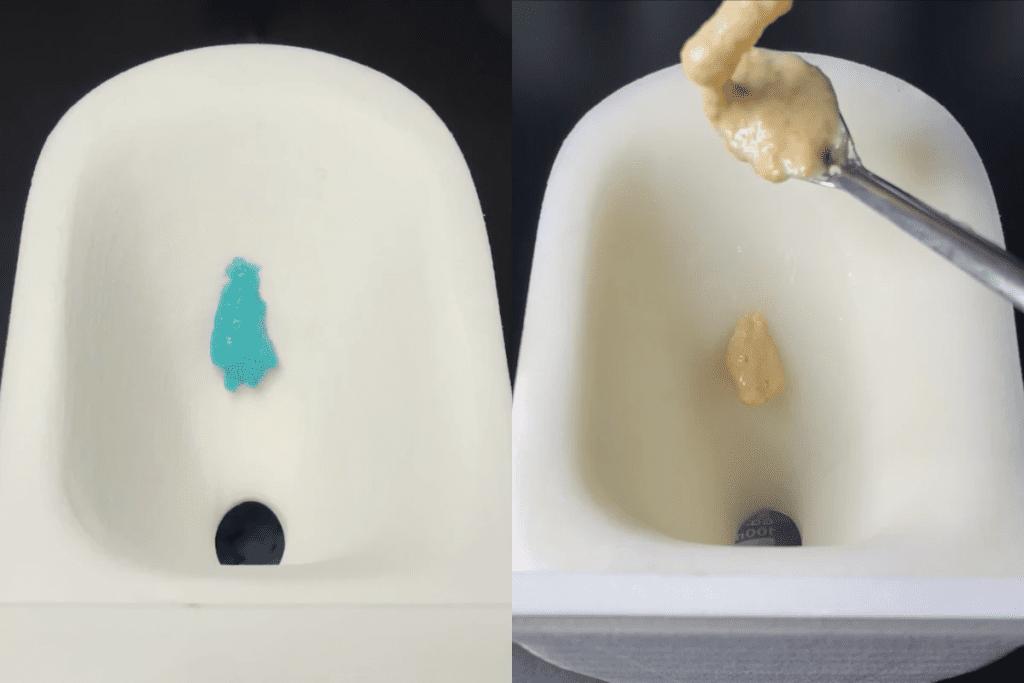Last Updated on October 31, 2025 by

Recovering from urethroplasty means paying close attention to more than just the surgical area. It’s also important to manage bowel movements safely. Effective bowel management helps avoid complications from constipation after surgery, which can sometimes increase the risk of developing a penile fistula.
Patients usually stay in the hospital for 1“5 days after urethroplasty. It’s key to manage bowel movements well to avoid straining, as this can harm the surgical area and contribute to issues like a penile fistula. Doctors suggest drinking more water and eating foods high in fiber to lower these risks.
By focusing on constipation prevention and using the right bowel management, patients can reduce the chance of complications, including a penile fistula, making the recovery process smoother.
Constipation is common after urological surgeries like urethroplasty. It needs careful management. The body is vulnerable after such a procedure, and extra strain can cause problems. We will look at the risk of constipation and its effects on healing.
Studies show up to 17% of patients get constipation after these surgeries. This issue is not just uncomfortable. It also raises the risk of bad outcomes, with a 1.793 odds ratio. This shows we need to manage bowel health early on.
Straining can harm the healing area after urethroplasty. The extra pressure can mess up the healing process. This might lead to a urethral fistula in males. It’s important to avoid straining to help the area heal properly.

To wrap up, managing bowel health well is vital after urethroplasty. Key points to remember are:
Proper bowel care can help prevent penile fistula, a possible complication after urethroplasty. A penile fistula is an abnormal connection between the urethra and the skin. It happens due to urine leakage or infection. Good bowel management is key to avoid such issues by reducing straining and infection risk.
Fistulas can form for many reasons, like urine leakage, infection, or straining during bowel movements. Straining increases abdominal pressure, which can harm the healing urethral tissue. Knowing this helps us take the right steps to prevent it.
To stop penile fistula and other issues, follow these bowel care tips:
By sticking to these tips, patients can lower their risk of complications after urethroplasty. It’s vital to work with healthcare providers to customize bowel care plans.
Managing your bowel after urethroplasty surgery is key. The first few days are very important for setting up good bowel habits. During this time, you’ll likely stay in the hospital for 1-5 days. Here, hospital-based care approaches are essential for your care.

In the hospital, doctors and nurses use many ways to help with bowel movements. They often use stool softeners to make it easier to pass stool. They also watch your bowel movements closely to catch any problems early.
We also use other bowel management techniques. We encourage you to drink plenty of water and move around as soon as you can. These steps help get your bowels moving and aid in your recovery.
The first bowel movement after surgery can be a worry for many. It’s important to know that it might be uncomfortable, but it’s a big step towards getting better. We suggest following the bowel management plan your healthcare team gives you.
We tell patients to stay relaxed and stick to a routine. This includes drinking enough water and eating foods that are good for your bowels. This way, you can reduce discomfort and help your urethroplasty recovery time go smoothly.
By managing your bowel movements well in the first days after surgery, you can lower the chance of problems. Our healthcare team is here to give you personalized care and advice every step of the way.
After urethroplasty, it’s key to make dietary changes to help with bowel movements. We suggest a detailed diet plan to ease discomfort and lower recovery risks.
Eating more fiber can make bowel movements easier. Add fruits, vegetables, and whole grains to your meals. Here are some good options:
Some foods can make constipation worse. We suggest avoiding or cutting down on:
Drinking enough water is key to soft stool and easy bowel movements. We recommend:
By adjusting your diet, you can greatly improve your bowel movements and comfort during recovery. It’s about finding a balance that supports your healing.
Patients after urethroplasty can use different medications to help with bowel movements. These drugs are key to avoiding constipation and ensuring a smooth recovery.
Stool softeners are often given to prevent constipation after urethroplasty. They make stool softer and easier to pass by adding more water. Using stool softeners correctly can greatly lower the chance of straining during bowel movements, which is important for healing.
To get the most from stool softeners, follow your doctor’s dosage advice. Also, drink enough water to help the medication work better.
Sometimes, laxatives are needed to help move the bowels. Laxatives are useful when stool softeners aren’t enough. There are various laxatives, like stimulant and osmotic laxatives, each with its own way of promoting bowel movements.
It’s important to balance pain management with bowel function after urethroplasty. Pain meds are vital for comfort, but some can make constipation worse. Talking to your healthcare provider about bowel habits is key to adjusting pain meds.
We suggest patients keep a bowel movement log and list all medications. This helps your healthcare provider make the right changes to prevent constipation.
Getting the right position is key to easy bowel movements after urethroplasty surgery. We know recovery can be tough. The right techniques can really help.
Choosing the right sitting position is important. We suggest using a stool or footrest to lift your feet. This helps straighten your rectum, making it easier to go.
Relaxation is key for easy bowel movements. Try deep breathing exercises to relax your pelvic floor muscles and reduce discomfort.
Following activity restrictions is vital to protect your surgical site and aid healing. Avoid heavy lifting, bending, or strenuous activities for the recommended time.
By using the right physical position, relaxation techniques, and following activity restrictions, you can greatly improve your comfort during bowel movements. This will also support your recovery from urethroplasty.
Modern recovery methods and outpatient care can greatly improve urethroplasty outcomes. These methods make patients more comfortable and lower the chance of complications.
Today’s recovery plans focus on a mix of care, including optimized pain management, early mobilization, and personalized nutrition planning. These steps help reduce pain, lower complication risks, and speed up healing.
Effective bowel management is key after urethroplasty surgery. Patients can use several home strategies to help with bowel movements.
Using these home strategies can help avoid constipation and related issues, making recovery smoother.
While you can manage some care at home, there are times to seek medical help. Look out for signs of complications like severe pain, infection, or urinary retention.
Quickly reaching out to your healthcare provider in these cases can prevent serious problems and help you recover well.
Recovering well from urethroplasty needs good bowel care and following the doctor’s orders. By doing what we’ve talked about, patients can lower the chance of problems like fistulas. This makes the recovery smoother.
It’s key to understand how bowel care works. Making diet changes, using meds when needed, and staying in the right positions help a lot. These steps are important for avoiding issues after urethroplasty. By adding these to their care plan, patients can make their recovery better.
Good bowel care is vital for a good recovery after urethroplasty. By focusing on bowel health and using the right strategies, patients can help their healing. They can also avoid problems and get the best results. We want to help patients on their recovery path, giving them the support and care they need.
After urethroplasty, managing your bowel is key. It helps avoid problems like penile and urethral fistulas. Straining from constipation can harm the surgical site.
To avoid constipation, eat more fiber and avoid certain foods. Drink lots of water too. Stool softeners and laxatives can also help keep your bowel movements regular.
Eat foods high in fiber and avoid constipation-causing foods. Drink plenty of water. This helps with bowel movements and aids in recovery.
Recovery time from urethroplasty varies. With good care and bowel management, most patients recover well. Following the recommended recovery plan is important.
Seek medical help for severe pain, trouble urinating, or other signs. Also, if you have unusual bowel movements or persistent constipation, get medical help.
Use the right sitting positions and relaxation techniques. Also, follow activity restrictions. This makes bowel movements easier and lowers the risk of complications.
Yes, urethroplasty can cause urethral fistulas in males if not managed well. Proper bowel care and following post-op instructions can reduce this risk.
Subscribe to our e-newsletter to stay informed about the latest innovations in the world of health and exclusive offers!